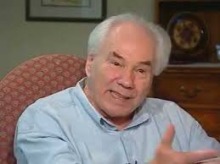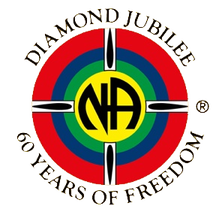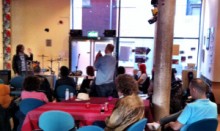 My second interview with James Deakin, Founder of North Wales Recovery Communities (NWRC), took place on 16 June 2023. It involved Perth, Western Australia, linking up with Bangor, North Wales, on Zoom, with a seven-hour time difference. I edited 11 films from the interview, totalling just under 58 minutes.
My second interview with James Deakin, Founder of North Wales Recovery Communities (NWRC), took place on 16 June 2023. It involved Perth, Western Australia, linking up with Bangor, North Wales, on Zoom, with a seven-hour time difference. I edited 11 films from the interview, totalling just under 58 minutes.
We covered a range of topics relating to the functioning of NWRC. These topics included NWRC trying to create as many recovery pathways as possible, involving various mutual aid groups holding meetings at NWRC’s Penrhyn House; the power of ‘the group’ in helping individuals; the importance of being committed to, and engaged with, the various activities offered by NWRC; the importance of service to the community and further afield (with examples, including a project in Kenya); education; and dealing with trauma and its impact.
I’m fascinated and excited by what is going on at NWRC. I hope our films involving NWRC—33 Voices Films totalling over three hours of film—illustrate what can be achieved with a peer-led recovery service, and provide insights into the nature of recovery.


 I’ve just been reading another
I’ve just been reading another  Yesterday, I was going through old Recovery Stories blogs (from the period 2013/4) when I came across this gem. It’s a guest blog by a GP who gives a personal view on professional perspectives of mutual aid. No doubt, it is just as relevant today as it was then.
Yesterday, I was going through old Recovery Stories blogs (from the period 2013/4) when I came across this gem. It’s a guest blog by a GP who gives a personal view on professional perspectives of mutual aid. No doubt, it is just as relevant today as it was then. Here is a post from one of my favourite bloggers on our online recovery community Wired In To Recovery, which dates back to April 2009.
Here is a post from one of my favourite bloggers on our online recovery community Wired In To Recovery, which dates back to April 2009. As part of our Wired In strategy, my colleagues and I launched the Wired In To Recovery online community in November 2008. Our initial aims with Wired In To Recovery were to:
As part of our Wired In strategy, my colleagues and I launched the Wired In To Recovery online community in November 2008. Our initial aims with Wired In To Recovery were to:




